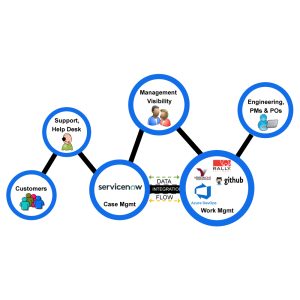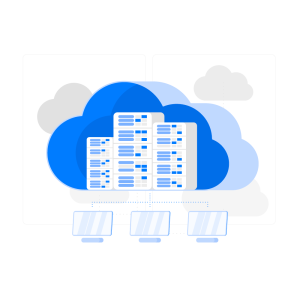Environmental regulations and stakeholder expectations are intensifying, making it imperative for organizations to manage their ESG data with precision and transparency. Fragmented data systems and inconsistent reporting can undermine the credibility of ESG initiatives, while integrated, high-quality data empowers businesses to align their strategies with global sustainability benchmarks.
With IBM Envizi, companies can consolidate diverse data streams into a single platform, enabling accurate tracking, analysis, and reporting of ESG metrics. However, achieving this requires more than just deploying the tool; it demands a thoughtful approach to data integration tailored to the unique needs of each organization.
Understanding the Importance of Data Integration in ESG Management
The complexity of ESG data arises from its varied sources and formats. For example, energy consumption data may come from smart meters, while supplier compliance information may be sourced from third-party audits. Without a cohesive integration strategy, these diverse datasets can remain siloed, creating gaps that hinder comprehensive ESG analysis. Effective data integration bridges these silos, ensuring all relevant metrics are collected, standardized, and made accessible for decision-making. This integration not only improves reporting accuracy but also enables organizations to uncover trends and risks that might otherwise go unnoticed.
Moreover, regulatory compliance and stakeholder transparency depend heavily on integrated data. ESG frameworks like GRI, SASB, or TCFD require meticulous reporting across numerous parameters. Without seamless data integration, meeting these standards can become a daunting task. IBM Envizi simplifies this process by enabling organizations to consolidate their ESG data in one place, automate reporting workflows, and ensure compliance with global regulations. This comprehensive approach helps businesses build trust with investors, customers, and regulatory bodies while demonstrating their commitment to sustainability.
Key Strategies for Effective Data Integration in IBM Envizi
1. Assess and Map Your Data Landscape
Before diving into integration, understanding your data landscape is crucial. Identify the sources of your ESG data internal systems, third-party providers, or manual inputs. Document the type, format, and frequency of data generation.
Steps to Follow:
- Create an inventory of all data sources.
- Map the flow of data from collection to reporting.
- Identify gaps or overlaps in data streams.
With a clear map, you can tailor integration efforts to focus on high-impact areas.
2. Leverage APIs for Real-Time Data Synchronization
IBM Envizi supports API-based integrations, enabling real-time data exchange between systems. APIs allow seamless connectivity, ensuring data accuracy and timeliness.
Why It Matters:
- Reduces manual data entry errors.
- Facilitates real-time monitoring of ESG metrics.
- Enhances collaboration across departments.
For example, integrating energy usage data from IoT-enabled meters into Envizi via APIs can provide instant insights into carbon emissions.
3. Standardize Data Formats
Data standardization is a foundational step for integration. Inconsistent formats can lead to errors and complicate analysis.
Best Practices:
- Use industry standards like XBRL for financial disclosures or ISO standards for environmental metrics.
- Establish a uniform naming convention for datasets.
- Automate validation checks to flag inconsistencies during integration.
Standardization not only simplifies integration but also enhances the quality of ESG reporting.
4. Automate Data Ingestion Processes
Manual data entry can be error-prone and time-consuming. Automation tools within IBM Envizi can streamline data ingestion.
Tools to Explore:
- Data loaders for batch uploads.
- Pre-configured connectors for ERP systems like SAP or Oracle.
- Workflow automation for periodic data imports.
Automation ensures that data integration scales effortlessly as your ESG initiatives grow.
5. Implement Robust Data Governance
A strong governance framework is essential for managing data integrity and security. ESG data often includes sensitive information that requires compliance with regulations.
Key Components:
- Role-based access controls (RBAC) to limit data access.
- Regular audits to ensure data accuracy.
- Encryption protocols to safeguard sensitive information.
IBM Envizi’s built-in governance tools can support your compliance efforts and reinforce trust in your ESG data.
6. Incorporate AI and Analytics for Advanced Insights
Advanced analytics can transform raw data into actionable insights. IBM Envizi’s AI capabilities can identify trends, anomalies, and predictive patterns.
Applications:
- Use machine learning to predict future energy consumption trends.
- Analyze supplier performance for sustainable sourcing.
- Visualize ESG performance metrics through dynamic dashboards.
By integrating AI, businesses can shift from reactive to proactive ESG management.
Overcoming Common Challenges in Data Integration
Even with a solid strategy, challenges can arise. Here’s how to tackle some common obstacles:
- Data Silos: Use middleware solutions to bridge disconnected systems.
- Legacy Systems: Plan phased migrations to avoid disruption during integration.
- Data Quality Issues: Implement continuous monitoring and cleansing processes.
These proactive measures will help mitigate risks and ensure smooth integration.
Benefits of Comprehensive Data Integration in IBM Envizi
Effective data integration unlocks several benefits, including:
- Accurate ESG Reporting: Enhanced data accuracy leads to reliable disclosures and compliance.
- Operational Efficiency: Streamlined processes save time and resources.
- Informed Decision-Making: Integrated data provides a holistic view for strategic planning.
By addressing integration challenges head-on, organizations can harness the full capabilities of IBM Envizi.
Conclusion: Nexright Your Partner in ESG Excellence
Navigating the complexities of data integration in ESG management requires expertise and precision. At Nexright, we specialize in delivering tailored solutions that enhance IBM Envizi’s capabilities. Our team works closely with clients to design and implement robust integration strategies, ensuring seamless data flow and impactful ESG insights.
Whether you’re starting your ESG journey or looking to optimize your current processes, Nexright is here to guide you. With our deep expertise and commitment to excellence, we empower businesses to achieve their ESG goals confidently.
Ready to elevate your ESG management? Connect with Nexright today.




